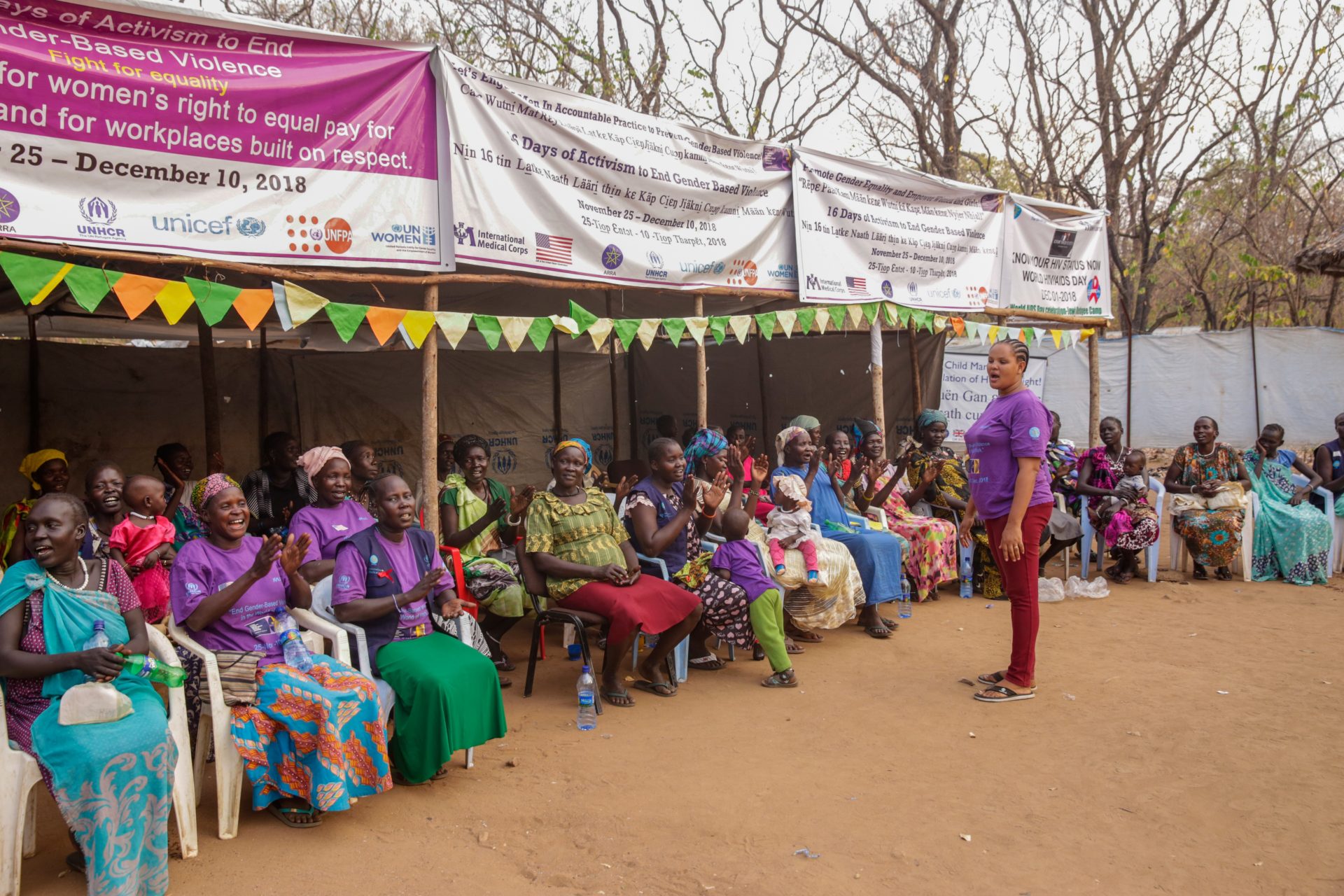
Course Materials For Preventing Sexual Exploitation And Abuse
InterAction has long supported its membership and the broader humanitarian sector in preventing and responding to the sexual exploitation and abuse (SEA) of beneficiaries and community members by aid workers.
Since the 2003 issuance of the U.N. Secretary General’s Bulletin on Special Measures for PSEA, the NGO community has been working tirelessly to eradicate all forms of sexual exploitation and abuse by its staff—an especially extreme violation of dignity committed against the community members that NGOs seek to serve through their humanitarian interventions.
We know that SEA remains an underreported and unaddressed problem and we need new approaches if we truly wish to see its eradication from our humanitarian operations. InterAction has undertaken a complete update and revision of its PSEA Basics Training Guide which was first launched in 2013. This new approach consists of three comprehensive Modules:
Module 1: PSEAH Standards and Response
- Treating People with Respect and Using Positions of Power Responsibly
- The Six Core Principles/Code of Conduct (CoC)
- Recognizing Prohibited Conduct and Suspicious Behavior
- The Reporting Process
Please note: Module 1 materials are also available in Arabic, Portuguese, French, Spanish, Ukrainian, Swahili, Amharic, and Pashto.
- The Behavior Continuum and Bystander Intervention
- Safe Recruitment and Selection
- Safe Programming and Risk Management
Please note: Module 2 materials are also available in Arabic, Portuguese, Spanish, French, Ukrainian, Swahili, Amharic, and Pashto.
Module 3: Managing an SEA Investigation
- The Investigation Manager’s Role and Key Investigation Principles
- Managing Risks in Handling an SEA Allegation
- Piecing Together the Steps of an SEA Investigation
Please note: Module 3 materials are also available in French.
In addition to the training materials above, we have produced the No Excuse for Abuse Informational Video, currently available in over 40 languages.
The updated version of InterAction’s PSEA training material adds value to existing content in the sector in two specific ways: 1) by emphasizing the role that power dynamics play in the perpetration of sexual violence and 2) by offering tangible ways by which humanitarian aid and development practitioners can safely and effectively prevent PSEA at an individual level through active bystander intervention, and at an organizational level through safe recruitment, selection, and programming practices.
InterAction consulted a broad range of stakeholders in multiple interactive sessions to inform this updated package of materials we hope will be widely used and impactful for operational organizations around the world.
Community-Based Complaints Mechanism Workshop
PowerPoint Presentations
Session 1: Introductions and Workshop Overview
Session 2: Sexual Exploitation and Abuse – Principles and Risks
Session 3: Community-Based Complaints Mechanisms
Session 4: Establishing a Community-Based Complaints Mechanisms
Session 5: Recap of Day 1 + Haiti Case Study (no PowerPoint for this session)
Session 6: Case Studies – Lessons Learned
Session 7: Receiving and Documenting Complaints and Referral Mechanisms
Session 8: Implementing a Community-Based Complaints Mechanisms
Session 9: Wrap-up, Recap and Workshop Closure
Workshop Handouts
Collaborating and Innovation – Haiti Case Study
Secretary-General’s Bulletin – Special Measures for Protection from SEA
Statement of Commitment of UN and Non-UN entities (NGOs)
Investigations Workshop
Facilitator Guide | Participant Manual
PowerPoint Presentations
Session 1: Introductions and Course Overview
Session 2: Codes of Conduct, Definitions and Core Principles
Session 3: Overview of Investigations
Session 4: Gathering Information
Session 5: KIDAID Case Study (no PowerPoint for this session)
Session 6: Closing the Investigations, Findings, and Report Writing
Session 7: Review, Implementation, and Next Steps
Workshop Handouts
Workshop Agenda
Knowledge Check (without answers)
Knowledge Check (with answers)
KIDAID Case Study
Interviewing – Four Stages of an Interview
Actors’ Notes
Investigation Planning Tool
Investigation Report Outline
Outcome of Investigations
Management of Investigations Workshop
Facilitator Guide | Participant Manual
PowerPoint Presentations
Session 1: Introductions and Workshop Objectives (Experiences and Challenges)
Session 2: Investigations and Risks
Session 3: Managing Investigations
Session 4: Management Responsibilities (Building a Culture of Safety, Audit – IASC Minimum Operating Standards for PSEA, and Next Steps)
Workshop Handouts
Guidelines to Implement Minimum Operating Standards on PSEA (IASC MOS Standards)
Action Planning Worksheet
Investigation Planning Tool
Investigation Report Outline
Managing an Investigation
Outcome of Investigations
Principles of Investigations
Share the Peace Case Study
Additional Resources
- InterAction Step by Step Guide to Addressing Sexual Exploitation and Abuse (June 2010)
- Secretary-General’s Bulletin – Special Measures for Protection from SEA
- Building Safer Organizations (BSO) Guidelines – Receiving and Investigating Allegations of Abuse and Exploitation by Humanitarian Workers (ICVA)
- Sexual Exploitation and Abuse Glossary
- Anticipated Questions for the InterAction SEA Modules: Community-Based Complaints Mechanisms, Investigations and Management of Investigations Workshops






